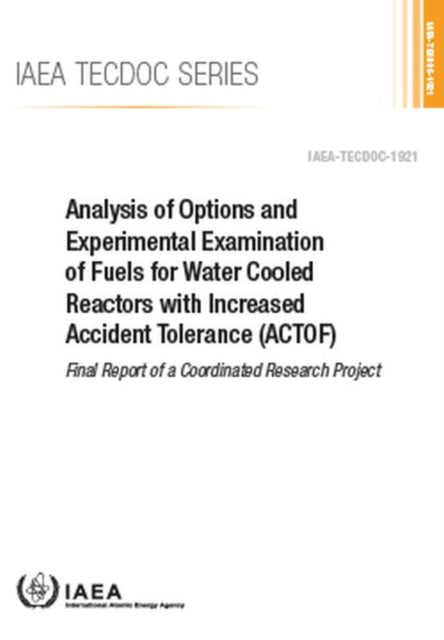IAEA
Optimizing Soil, Water and Nutrient Use Efficiency in Integrated Cropping-Livestock Production Systems
Optimizing Soil, Water and Nutrient Use Efficiency in Integrated Cropping-Livestock Production Systems
YOU SAVE £8.02
- Condition: Brand new
- UK Delivery times: Usually arrives within 2 - 3 working days
- UK Shipping: Fee starts at £2.39. Subject to product weight & dimension
Bulk ordering. Want 15 or more copies? Get a personalised quote and bigger discounts. Learn more about bulk orders.
Couldn't load pickup availability
- More about Optimizing Soil, Water and Nutrient Use Efficiency in Integrated Cropping-Livestock Production Systems
This publication summarizes the results of an IAEA-coordinated research project on optimizing soil, water, and nutrient use efficiency in integrated cropping-livestock production systems to enhance food security, improve soil fertility, and mitigate greenhouse gases. It also developed a package of technology for farmers to increase crop production and improve livelihoods using nuclear and related techniques.
\n Format: Paperback / softback
\n Length: 168 pages
\n Publication date: 30 January 2021
\n Publisher: IAEA
\n
This publication is a valuable resource that draws on extensive data and findings gathered during an IAEA-coordinated research project (CRP) focused on optimizing soil, water, and nutrient use efficiency in integrated cropping-livestock production systems. The primary objective of this project was to enhance food security, improve soil fertility, and mitigate greenhouse gas emissions from agriculture through the implementation of integrated cropping-livestock systems in changing climate conditions. Furthermore, the project participants developed a comprehensive package of technology and techniques for farmers to increase crop production and improve their livelihoods, utilizing nuclear and related approaches.
The CRP project involved a collaborative effort between international organizations, research institutions, and farmers from various countries. It encompassed a wide range of research activities, including field trials, laboratory experiments, and modeling studies. The data collected during the project provided valuable insights into the performance of different cropping-livestock systems under different climate conditions, as well as the potential benefits and challenges associated with their implementation.
One of the key findings of the CRP project was the importance of integrating crop and livestock production systems to optimize resource use and improve sustainability. By combining crops and livestock, farmers can maximize the utilization of available land, water, and nutrients, reducing waste and minimizing environmental impact. For example, crop residues can be used as feed for livestock, reducing the need for external inputs and promoting soil fertility.
Another important aspect of the CRP project was the development of technology and techniques that can help farmers increase crop production and improve their livelihoods. These technologies include precision agriculture, which uses sensors, drones, and other advanced technologies to optimize crop management practices. Precision agriculture can help farmers reduce the use of pesticides and fertilizers, improve crop yields, and minimize soil erosion.
In addition to precision agriculture, the CRP project also explored the use of nuclear and related techniques to improve crop production and soil fertility. For example, nuclear techniques such as isotope tracers can be used to monitor soil moisture and nutrient levels, allowing farmers to make informed decisions about irrigation and fertilization. Nuclear techniques can also be used to enhance the genetic diversity of crops, improving their resistance to pests and diseases.
The CRP project also emphasized the importance of promoting sustainable agricultural practices and reducing greenhouse gas emissions from agriculture. By adopting practices such as crop rotation, cover cropping, and reduced tillage, farmers can help improve soil health, reduce water pollution, and mitigate climate change.
Overall, this publication provides a comprehensive overview of the findings and recommendations of the IAEA-coordinated research project on optimizing soil, water, and nutrient use efficiency in integrated cropping-livestock production systems. It is a valuable resource for policymakers, researchers, and farmers interested in improving food security, promoting sustainable agriculture, and mitigating greenhouse gas emissions from agriculture.
\n Weight: 464g\n
Dimension: 209 x 295 x 13 (mm)\n
ISBN-13: 9789201159205\n \n
This item can be found in:
UK and International shipping information
UK and International shipping information
UK Delivery and returns information:
- Delivery within 2 - 3 days when ordering in the UK.
- Shipping fee for UK customers from £2.39. Fully tracked shipping service available.
- Returns policy: Return within 30 days of receipt for full refund.
International deliveries:
Shulph Ink now ships to Australia, Belgium, Canada, France, Germany, Ireland, Italy, India, Luxembourg Saudi Arabia, Singapore, Spain, Netherlands, New Zealand, United Arab Emirates, United States of America.
- Delivery times: within 5 - 10 days for international orders.
- Shipping fee: charges vary for overseas orders. Only tracked services are available for most international orders. Some countries have untracked shipping options.
- Customs charges: If ordering to addresses outside the United Kingdom, you may or may not incur additional customs and duties fees during local delivery.


